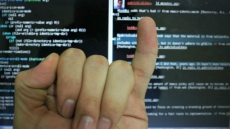In view of increase in usage of mobile based health applications, Indian doctors have urged people to not blindly rely on such technologies for health updates as they may give wrong estimates.
They said that a lot of times the applications suggest wrong diet to the user, without knowing the metabolism of the users body, resulting in serous health complications.
"A lot of of applications are not to be relied upon and exist just to generate revenue in the market. There are health applications which claim to measure blood pressure by simply keeping thumb on the screen. Such techniques are misleading," said Pradeep Gadge, a leading diabeteologist.
Citing an example, he said that the blood pressure result after measuring through health applications are always different from manually measuring it.
"There are situations when health application users rely on it for the calories burn during the entire day along with several other things, without even realising that such applications are pre set and do not show the actual results," said Gadge.

According to doctors, there are an estimated 50,000 medical applications presently in the market and this is expected to grow. Currently, 500 million people worldwide are using health applications for health updates.
Sudhir Kumar, a Delhi-based diabeteologist, said: "People want instant results and further they follow their own methods to loose extra kilos through apps or some methods rather than going for the natural way or the way suggested by the doctors.
"Despite the popularity and promise of these apps, I'm skeptical about most of these. People need to understand that health guidelines for people vary."
He said that a recent survey also had revealed that various health applications had diagnosed several types of diseases to its users, but when they consulted the doctor further they were found to not be suffering from any diseases.




